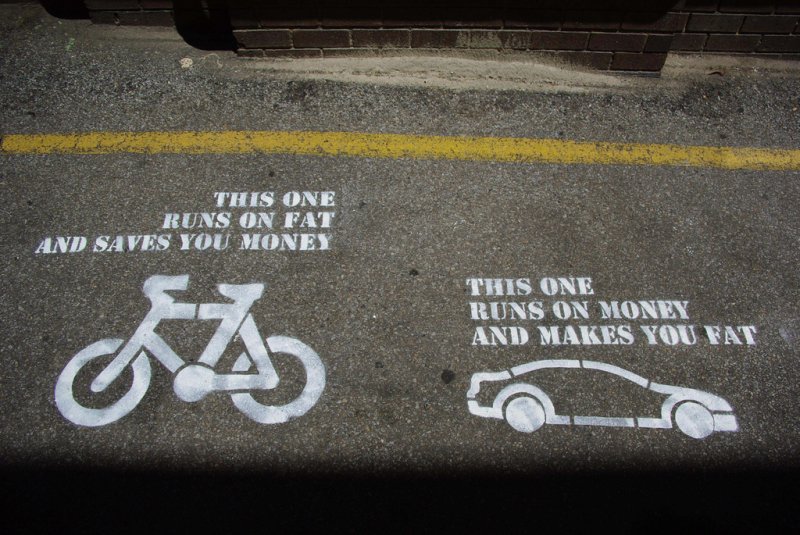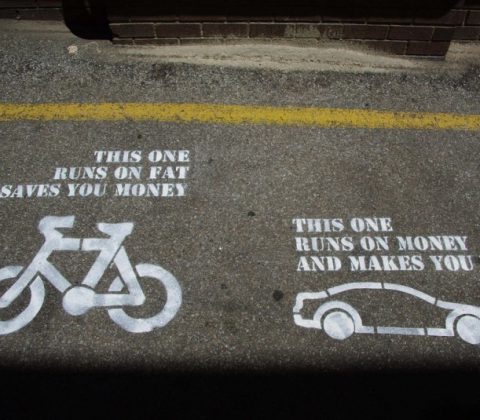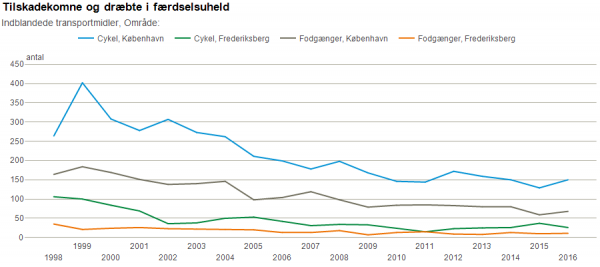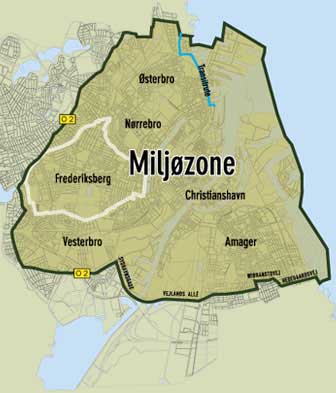Posts in Category: Dreams


Dreaming of a car free Copenhagen
I’m dreaming of a car free Copenhagen.
I don’t believe in New Year resolutions or waiting for “right moments” to change your life. If you feel something in your life needs a change, the right moment is often now. Now, while you have the thought and the motivation. Take the first step, make a resolution Stick to it. And also, seek help and support from your friends.
But still, I would like to take this opportunity of going into the year 2018 to make a daring proposition:
Make central Copenhagen completely car free!
Well… except for a few minor exceptions – but let’s take that later.
I have been living in Copenhagen (Nørrebro) for 7 years, and (before that) in the area (Lyngby / Holte) for another 7. It has been fun. It has also been a mixed blessing. When I moved to Lyngby it was to get an education and then back to Jutland, but then something kept me here. At first, there was a girl who’s big blue eyes got wet if I mentioned myself and Jutland in the same sentence1. Then there was work. Lastly (and most importantly) my climbing, acroyoga, and friends. I like it a lot.
But there is also something that was always a bit off for me. I never felt completely home. I missed the open space. I missed the clean air. When I bike through Copenhagen (I bike to almost everything) the dirt in the air and the smell of the fumes are not a pleasant experience. State of Green will tell you that “Copenhagen no. [is] 2 in Europe for Air Quality” (2015) – but then again, State of Green is founded by (among others) the Danish government, so of course they will tell you the good story. Clean Air Europe had in 2014 a number of recommendations for Denmark which (on one hand) is not so unusual but (on the other hand) disagrees a bit with the rosy image provided by State of Green.
So humour me a bit and join on this thought experiment of making Copenhagen a really green city2. First question would be…
How would people get around?
Short answer: Bicycles.
I would argue that Copenhagen is such a small city, that most people (not all) would be able to get around in their day to day business using bicycles. The Christiana bike and its competitors has been around long and proved themselves useful for transportation of a various of things. With the “new” electric bikes, it makes biking more accessible also to the group people not so eager to get the daily exercise while commuting – or just don’t have the capabilities for it any-more.
Other alternatives is (of course) walking 🙂 and public transportation. I will touch a bit on the later topic later in this essay.

Source: Stig Nygaard on Flickr.
Benefits
Now, let’s have a look at some of the benefits of having a car free city. There are a few that immediately come to my mind…
- Space
First thing, I think you will notice, is the space. What if all the space we use for roads could be open to the public? To pedestrians. To bicycles. To green areas. To cosy corners where Copenhageners could enjoy the outdoor life.Imagine big 4 lane (2 in each direction) roads being reduced to a single one way lane (for necessity traffic) and the rest given out to bicycles. Traffic lights timed for bicycles so that you could stroll with 25km/h through the inner city on your way to work – not stopping for any red light.
Imagine small gardens (with clean air so you could actually eat the stuff you grow3) at every street corner. Green areas to relax on. Petanque courts. Areas for slackline, parkour, skating, basketball, etc. Barbecue grills, hammocks, stages for live music and dancing. I kind of feel my imagination is a little bit limited right now… but the essential idea is… why restrict our social life to parks? Why not have it just outside our front door where we can meet our neighbours and connect with each-other.
What is your favourite outdoor activity? Why not have that outside your front door?
- Air quality
Under the assumption that most of the air pollution comes from traffic, removing (most of) the traffic would remove (most of) the air pollution. Simple.Imagine running through the city passing by local communal gardens with flowers and vegetables, and small patches of green with kids and dogs playing, and actually feel refreshed by the air that you breathe in.
In reality, the picture is a bit more complicated, though. Some of the air pollution also comes externally, from the environment outside Copenhagen. How much? I don’t know. And I would not know where to find such data. Also, some traffic need to be allowed in the city… see later in this essay for thoughts on that.
- Improved health
There are two sources of improved health. First, the current air pollution is estimated to cause between 800 to 1100 yearly premature deaths4. Thus, reducing the air pollution, would reduce this number as well.Secondly, the exercise itself will increase the health of the population (for those choosing the bike to work). This is a statement with modification to the individual. If it is a marathon runner that takes daily runs and other physical activity, and he/she has only 5 minutes to work, then it may not matter so much. But if it is otherwise an inactive person and he/she has perhaps 15 minutes to work (by bike), then the daily exercise will most likely increase that person’s health. The WHO recommends a 150 minutes of physical activity per week – corresponding to e.g. 5 times half an hour a week.
- Enjoy the silence
With all that traffic gone, I imagine there is going to be a lot of silence in Copenhagen. Actually, if some the free space were to be given back to parks and green area, maybe we will get more birds (other than pigeons and magpies) and people will open up their windows to hear them sing 🙂I also imagine that this silence will also contribute to lower stress levels of the general population – but that’s purely speculation on my side 😉
- Fewer and smaller traffic accidents
According to the Statistics Denmark there were 255 injured or fatalities in Copenhagen and Frederiksberg in 2016 involving either bicycles or pedestrians. While this number has been on a decline for almost 20 years and it is low (compared to the more hidden number of 800 to 1100 premature deaths due to bad air quality mentioned above) it is still a number that is worth mentioning. One might expect this number to go down, although not completely disappear, and perhaps accidents involving bikes and pedestrians (bikes running into other bikes or pedestrians) might increase. I would assume, though, that the injuries gained here would be smaller than those we see with encounter from the cars.
Source: Statistics Denmark.
- Better public transportation
A car free city does not involve free from buses. Quite the opposite, actually. Buses (as part of the public transportation system) is an important contribution to make it easy for those living in the city to get around without a bike. Whether the physical capabilities do not merit riding a bike, or if one needs to transport something (and does not have a cargo bike), or there is simply bad weather about, the public transportation should be a great alternative in those situations.While lots of the space in Copenhagen will be taken away from car roads and given to bicycle roads, I think that the space preserved to motorised traffic (such as buses) will be much less congested. The result will be that more buses can be instated and they can move quicker around. I have personally experienced (more than once) walking down Vesterbrogade and still be faster than the 4A bus servicing that street.
Another example is that I over the years have developed a saying – a small paraphrase of the saying misfortune seldom comes alone:
An A-bus seldom comes alone.
A-buses are the inner city buses in Copenhagen and are usually scheduled to arrive every 5th or 10th minute (depending on time of day) but with no fixed timetable as such. You would just know, that when you go down to the bus stop, you would maximum have to wait 5 minutes. What I often would see was (biking in the city) 2 or 3 A-buses (same line) driving head to tail of each-other. I would not pretend to understand it fully, but I presume that the traffic congestion in some city parts combined with bus-only lanes in other city parts make the buses tail up together.
That is current the state of central Copenhagen traffic situation – at least at certain hours.
- Tourists
So this point may not be seen as a benefit by all people. There are a lot of tourists in Copenhagen – which in general I think is a good thing – and if Copenhagen became a (near) car free city, that would certainly attract even more tourist. That is just my hunch… I might be wrong, though.
But… how…?
Yes… how would it be done?
I personally prefer the solution where cars (with exceptions) are banned from the city. It should be equal to everybody that you are not allowed to drive your car in the city… CEOs as well as cleaning ladies (and men), doctors as well as nurses, engineers as well as kindergarten teachers, politicians as well grass root activists.
When people (politicians?) talk about solutions such as a payment ring or (artificial) high parking fees, or other solutions, I can’t help but see the same characteristic in them: They all allow people that are better off with money to continue their habits, while people with less strong income must adapt.
Especially the member of the parliament should go first and skip their cars to work. I believe in dogfooding and find it absolutely toe-curling when people don’t use their own product or don’t follow the laws they vote for (or add convenient exceptions to it). You can say it is a good sign that it fails me (at the writing moment) to find good examples of non-doogfooding in Danish politics (or maybe just bad memory) but I still think it would suit the parliament to be in the front line 🙂
So, we would ban (most) cars in Copenhagen. Reduce all roads to either one way (one lane) streets (for cars only) or to “pedestrian streets” where (the excepted) cars could drive – but with pedestrians and bicycles having the right of way. In its basic idea, it is that simple!
Exceptions
But as I have mentioned a couple of times, there are some (obvious) exceptions to this simple rule. The number of exceptions should be kept at a minimal (again, dogfooding), but to list the ones I can think of…
- Ambulances, police, fire department
Need I say more? Important part of our infrastructure as a society and thus exempt from the ban.One could note, though, that perhaps while most cars are banned from the city, the need for police cars could perhaps be swapped out by police on motorbikes or, dare I suggest, on push bikes as well 🙂
Some might even get nostalgic and eye an opportunity for having the police riding horses again 😀
- Public transportation buses
As mentioned before, public transportation should be an attractive alternative for those not able to or not wanting to bike and walk around the city. Buses are an important part of that infrastructure and is (of course) exempt from the ban. - Goods delivery
Delivery of goods is also important and thus should be exempt – though perhaps with a minor twist.While my personal impression is that there are a lot fewer trucks in Copenhagen (goods delivery) than private cars it also feels a bit, hm, broad to just exempt all trucks from the ban. So perhaps exempted trucks are trucks that have a specific delivery or pick-up appointment, and then only on weekdays from 10am to 2pm. I think there are already similar rules in Copenhagen, so perhaps the idea is not so foreign.
- Diplomatic visits
Would I get away with suggesting that diplomatic visits and head of states would not enter Copenhagen by car? That they either are received outside Copenhagen or experience the Danish transportation culture first hand? Probably not. Dammit. 😀 - The queen and the royal family
Though I would love to see members of the royal family riding bikes through the streets of Copenhagen, I only barely dare to think the thought, to say nothing of suggesting it 😮 - Services that are dependent on vans / trucks / cars
A brief (and not complete) example list of this could be craftsmen (electricians, plumbers, carpenters, etc.), renovation services, construction services, road services, food service (for e.g. elderly people).How about delivery services for private addresses? Don’t quite know… on one hand the postage system has (for many years) shown that small packages clearly can be delivered using bicycles. On the other hand, it should be possible to get that double bed or washing machine delivered without overloading the cargo bike you borrowed from your neighbour.
- Some form of car sharing
Sometimes life just becomes much more easy if you have a car. Say you are a band and got a gig at the local pub, you don’t want to hire a moving crew to transport your gear: Too expensive and you feel better by taking good care of your instruments yourself. Here, perhaps, using the local car sharing service (multiple already exist in Cph) could be an option. The trick is, though, to somehow regulate this use in order not just flood Cph with car sharing cars now we just got rid of all the personal cars. How is that best done? I don’t know 🙁 - Taxis?
Yes. No. Maybe. Don’t know. What about bicycle taxis…?
But… how…? – Take 2
There are still a lot of open questions… one that immediately comes to mind is…
How about long distance commuters? People that either live in Copenhagen and work outside, or live outside and work inside. I kind of imagined that the latter would perhaps drive to the “no car barrier”, park their car there, and then take the public transportation into the city. I think that was actually part of the original 5 finger plan for Copenhagen. For the former, I would imagine the opposite pattern… you take the public transportation out of town, then find your car in your garage or, even better, use one of cars from the “incoming” people in a car sharing form.
Long distance travels? Say you have family in Jutlan but live in Copenhagen. You would like to have a car and use it to go visit your family. You could have it parked in a garage outside the car-free zone, but perhaps you need a bit of luggage with you when you go? Perhaps you have kids and suddenly the situation kind of requires a car. So clearly, in some cases, it should be possible to enter the car free zone with your car.
How would that work? Just thinking out loud… perhaps if the first 3 entries (per year) into Copenhagen were for free. The next 3 entries would then cost a low fee, say 100kr. The next 3 entries would be doubled in price to 200kr each. For each 3rd entry into Copenhagen the price would be doubled. If the family trip was done once a month, the family would pay 2100kr in fees. Reasonable? Perhaps the fees need to be adjusted. But it is only to illustrate that the careless driver who drives into Copenhagen once each week (using this scheme) would get to pay 26,214,100kr in fees. Ok, so this sounds like a lot, but the idea is that nobody need to drive their car into Copenhagen every week – and if they do, there probably need to be an exception for them.
Long distance visits? Probably same as above. Drive to the car free zone border, take the public transportation from there. Or you get the same 3 first time free scheme as above.
And oh… Electric cars! To make this plan even more green, and for me to accept the necessary cars more easily in Copenhagen, it would be awesome if it were so that all regular motorised traffic in Copenhagen should be electric. Less noise and cleaner for the environment.
By “regular motorised traffic”, I mean all the exempt cases (infrastructure services, buses, goods delivery) mentioned in the previous section. The irregular traffic (e.g. long distance visits in the previous paragraphs) could be exempt from the electric-car requirement. At least for the time being 😉
The last point I’m going to touch upon is… where is the zone going to be?
Well… A good start, I think, could be to take offset in the current environmental zone of Copenhagen:

Source: Flush-It.
Perhaps some would argue that the active harbour areas should be excluded from the car free zone in order for it to function properly. Perhaps. Like so many other points in this dream… there are lots of issues that need to be worked out and I don’t have many answers.
But I can always dream, can’t I?
- Curiously enough, she didn’t get wet eyes if I mentioned myself and e.g. Greenland in the same sentence. But I guess, that’s a completely different topic ;-) ↩
- Ok, so making Copenhagen a car free city is not the only thing it takes to make Copenhagen a green city. Other initiatives such as food sharing, using renewable energy, better waste treatment, etc. is also good topics to work on. But this is not for the scope of this little essay. ↩
- We might need to get some fresh soil as well for the gardens… The “ground soil” will take some years and effort to clean up properly as well. ↩
- Again, from the Clean Air Europe report. ↩